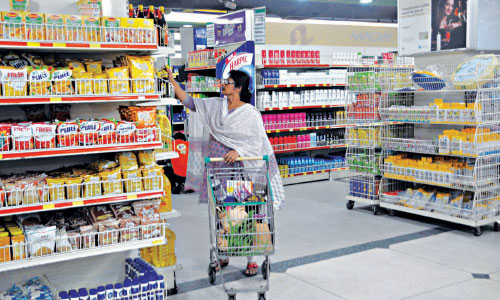New VAT law at crossroads as opposition growing
Uncertainties loom large over the July 1 implementation of the new VAT law as the government is yet to issue related rules while trade bodies are rallying against the new law.
Field offices of the value-added tax wing of the National Board of Revenue are also in confusion, due to the ground reality, whether the new VAT and Supplementary Duty Act-2012 will come into force from the very first day of the new fiscal year or not.
Due to the confusion, most of the field offices have prepared two sets of budget proposals — one in line with the existing law and another in line with the new law — for the upcoming national budget, NBR officials said wishing anonymity.
Some field offices also suggested implementing the law on pilot basis for a specific time before going for its full execution as both the VAT officials and businesses need more training, logistic support and motivation considering the intensity of technical issues in the new law, they said.
They said that though the VAT Online Project carried out a series of trainings and motivational programmes, field officials favoured more such programmes.
Though the finance minister and high-ups of the NBR are persistently expressing their firm determination to implement the law from the stipulated time, the ground reality could not assure the field officials of the implementation that pushed them to make two separate budget proposals, they added.
Even, the NBR VAT wing has also prepared themselves with two separate sets of proposals for the upcoming budget to face any situation if the government decides to delay the implementation of the new law at the last moment.
Field offices also apprehended that some challenges would peep up in the transition period to move to a fully automated system from the existing traditional method and suggested exploring possibility of running two parallel systems for some time to overcome the problems.
The revenue board is yet to issue the new VAT rules, which will be the main instruments in implementing the new law, though only one and a half months are left for traders to prepare themselves in line with the new rules.
Some large manufacturing and trading houses including Unilever have been requesting the NBR for issuing the rules saying that they need at least two months to change their existing business procedures and accommodate the online system devised in the new law.
On the other hand, businesses particularly traders are threatening with strong movements to press for their demand for restoring the package VAT system and making some other changes in the law.
The Federation of Bangladesh Chambers of Commerce and Industry has already sent two letters to prime minister Sheikh Hasina seeking her intervention in the issue.
Business leaders sought implementation of the recommendations made by the NBR-FBCCI joint committee before moving with the new law and said that they would not accept flat 15 per cent VAT rate for all sectors set in the new law.
The NBR-FBCCI committee recommended increasing VAT-free turnover ceiling to Tk 36 lakh, setting turnover VAT at 3 per cent for turnover up to Tk 1.5 crore, setting VAT at 4 per cent for traders who are unable to get rebate and at 2 per cent for traders who sell products at fixed prices.
Dhaka South Businesses Forum, a platform of traders from Old Dhaka, at a press conference on Saturday said that they would keep their shops closed on May 25 and hold a human chain programme if their demands are not met by the time.
Seeking the prime minister’s intervention in the issue, they said that traders would go for tougher movements if the government tries to implement the law without meeting their demands.
The forum president Abdus Salam, general secretary Abu Motaleb, FBCCI adviser Monzur Ahmed and some directors were present at the briefing held at the National Press Club in Dhaka.
Four associations from the steel industry in last week also warned that they would take to the streets if the government remains stuck to its position on the 15 per cent VAT on steel products.
Business leaders said that the FBCCI, the apex trade body in the country, was aware about their movements and it lent its support to their demands.
News Courtesy: www.newagebd.net











